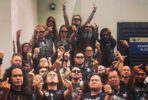Lee Hsien Loong and his lawyers were in court today at the beginning of the hearing to determine what damages Roy Ngerng had to pay him (see the report from the State media here).
The lawyers said that:
“It is therefore an extremely serious matter for the defendant to accuse the plaintiff of criminally misappropriating the monies paid by Singaporeans to the CPF.”
“Such an allegation undermines the plaintiff’s ability to lead the country, sustain the confidence of the electorate and to discharge his functions as Prime Minister and chairman of GIC.”
They concluded:
“The case for a very high award of damages, including aggravated damages, is compelling”
However, is it?
It is a well-established principle in English defamation law that in order to win substantial damages you have to show that you suffered financial loss from the defamation. Thus if you were a politician and you lost an election or had to resign as a minister because of defamatory statements made about you then you would be entitled to the loss of earnings from losing your seat or your position in the Cabinet. If you lost your job then you would be entitled to damages representing your lost earnings and your reduced earning capacity as a result of the libel.
After the 1997 election Goh Chok Tong sued my father, JBJ, for holding up a police report at an election rally and saying that Tang Liang Hong had just handed it to him. The police report was made against Goh Chok Tong and several other PAP ministers including Lee Kuan Yew and his son, Lee Hsien Loong.
However at the hearing, George Carman, my father’s QC, cross-examined Goh Chok Tong and got him to admit that his earnings had not suffered as a result of the election rally statement. To quote from a report that appeared in the Hong Kong Standard at the time,
Mr Goh testified 1997 had been a good year saying his standing in the world had not been injured. Yet in an affidavit Mr Goh had said his “reputation, moral authority and leadership standing had been gravely damaged both locally and internationally”.
Because Goh Chok Tong could not prove that he had suffered any damage and also because Carman showed that the plaintiffs (Goh Chok Tong and the other ten ministers) had authorised the release of the police reports to the press themselves, the district judge Rajendran only awarded Goh $20,000 in damages initially. Later, as always happens in Singapore, Prime Minister Goh was able to find a more sympathetic ear from the judges in the Court of Appeal, and the damages were raised to $100,000 plus costs.
Similarly in Lee Hsien Loong’s case what damage can he prove he has suffered as a result of Roy’s admitted defamation?
He is still Prime Minister of Singapore praised by international leaders, including President Obama, and likely to continue in office after the next general election. Has his salary of $2.2 million been cut either by reducing his monthly salary or his Individual Performance Bonus of three months pay been cut?
Lee Hsien Loong continues to be an MP so in addition to his Ministerial salary he continues to draw his MP’s salary of $192,500 per annum.
The PM also remains Chairman of GIC which is a serious conflict of interest, and which I have criticised frequently ( most recently in “The Problem with Husbands and Wives in the WP, in the Ruling Family, in Our Reserves”).
Although GIC’s annual report is silent on the subject of remuneration, it seems likely that Lee Hsien Loong would be paid, just as the other directors presumably receive directors’ fees and expenses. The Ministerial Salaries Committee said in its 2011 report that Ministers would continue to only receive one salary per Ministerial appointment held but was silent on the subject of Ministers who serve on the boards of Schedule 5 companies like GIC and Temasek.
Lee Hsien Loong’s wife, Ho Ching, continues as CEO of Temasek, despite the conflict of interest when her husband is the Prime Minister and has the ultimate authority over her appointment. Roy’s comments did not lead to her being sacked and she undoubtedly continues to be paid a multi-million dollar compensation package. Since her subordinates, most notably Ms Chua at SingTel who is earning over $12 million a year (see “Singaporeans Would Be Much Angrier If They Knew How Much SingTel’s CEO Was Really Getting” ), are earning total compensation packages running into many millions of dollars, Ho Ching can hardly be getting less. It is likely her total pay dwarfs that of her husband’s.
Lee Hsien Loong appears not to have suffered any financial loss. Neither has he become a pariah or outcast on the international stage. Despite his lawyers arguing that Roy’s allegations had undermined his ability to lead the country, sustain the confidence of the electorate and to discharge his functions as Prime Minister and Chairman of GIC, there is no evidence of that.
In fact, if there is any damage to the PM’s reputation, that damage is self-inflicted by his absurd decision to sue Roy, an unemployed health service worker from a lower income background, and to press for a ridiculous level of damages that he knows will force Roy into bankruptcy.
At the same time Roy has been dismissed from his job with a Government hospital, suffered a public attack on his integrity by the Ministry of Health which has to all intents and purposes made him unemployable and also been charged with illegal assembly for exercising his rights to free speech in the only area allotted to Singaporeans for this purpose. If this is not a vendetta by the Prime Minister it certainly appears as such.
It is also difficult to argue that Lee Hsien Loong has shown “an unflinching fidelity to integrity” as his lawyers said. If he did would he have permitted a system of governance with such an egregious conflict of interest where he is Chairman of GIC and his wife is CEO of Temasek? Between them they control over $800 billion of the nation’s assets including all the monies invested by the CPF Board in Government securities.
It is a pity that Roy admitted defamation in the crude sense that the PM was directly misappropriating CPF monies, which is how the Prime Minister’s lawyer, Davinder Singh, insisted on interpreting what Roy said.
While there is no evidence of such gross impropriety, if the Prime Minister receives any remuneration as Chairman of GIC that is related to its performance then he indirectly benefits from GIC being able to borrow from the Government as cheaply as possible, which is again dependent on the interest rates paid to CPF holders. The lower those interest rates, the lower GIC’s cost of funds and, presumably, the higher its returns.
While Temasek may not be directly dependent on CPF for funding, it receives subventions from the surpluses the Government generates. If cheap CPF funding enables GIC to make a higher rate of return and thus higher contributions to the Budget, the higher surplus may enable the Government to provide more money to Temasek for investment. According to Temasek’s annual report the bonuses of senior management are linked to the excess returns over a hurdle rate. If the hurdle rate is tied to the rates paid to CPF holders then Ho Ching’s compensation would be higher the lower the rates paid to CPF holders.
Roy would have been on safer ground if he had been clear that that is all he meant and that the PM should clarify whether he received any compensation from GIC and how Ho Ching’s compensation was determined.
Going back further into the past, there is the HPL saga in the 1990s to remind us that Lee Hsien Loong has not always shown an unflinching fidelity to integrity. He, together with his father and siblings, received large discounts for the purchase of properties from a developer over whom his government held the power to withhold planning permission or to compulsorily acquire its land. That is the only instance that we know about but the fact that Lee father and son paid back the discounts they received is an acknowledgement that they had done wrong.
In the UK ministers initiating defamation actions are normally required to resign from their posts for the duration of the case to avoid any conflict of interest that could arise. This is doubly the case with the all-powerful Prime Minister’s ridiculous action against a humble blogger who has admitted defamation. Instead of resigning for the duration of the case, LHL has gone the other way and even used the services of his Press Secretary in his private action, in a flagrant misuse of taxpayer resources that breaches the Ministerial Code of Conduct.
Combined with the cruel and inhumane treatment meted out to sixteen-year old Amos Yee for criticising LHL’s dead father, it appears that the Lee family want to silence any criticism of their godlike status. What will be next, I wonder, a six-year old expelled from kindergarten for saying bad things about Lee senior?
It is clear that any reasonable judge or jury would either dismiss LHL’s suit, on the grounds that he had suffered no damage, or else award him derisory damages of, say, $1,000-$5,000. It used to be the case in the UK that juries would award damages of just a penny if they decided that the plaintiff had been technically defamed, but had not suffered any financial loss or else was guilty of similar transgressions just not the exact one of which he was accused by the offending publication. If we had a jury in Singapore that would be likely to be the outcome here.
Source: http://sonofadud.com







